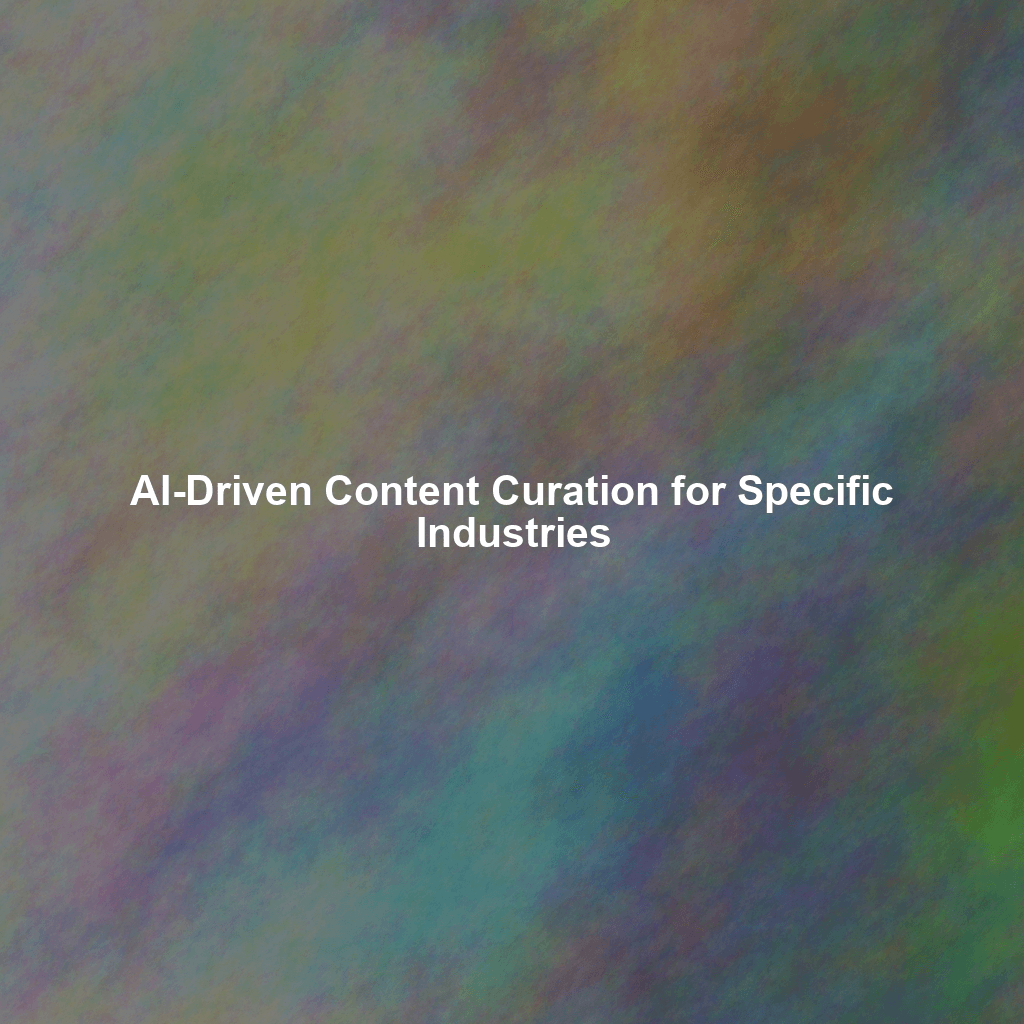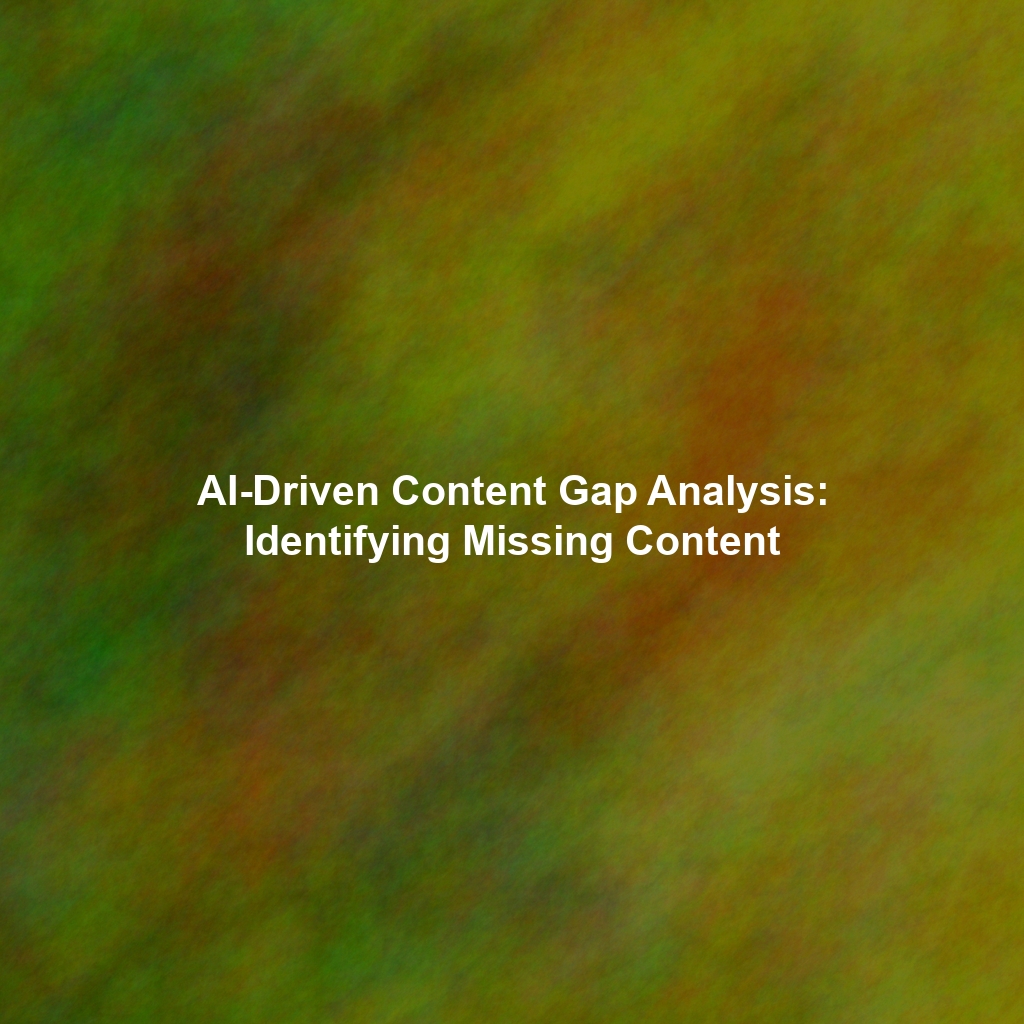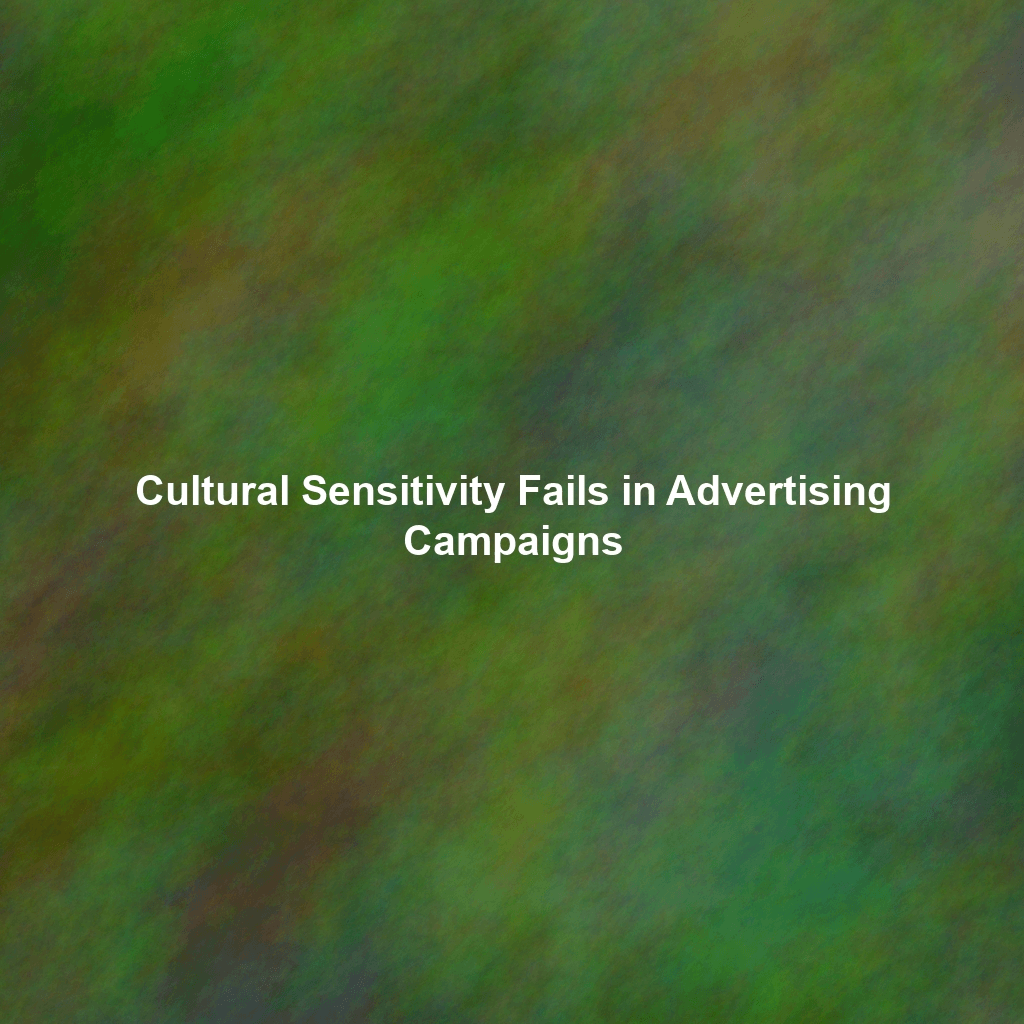In the ever-evolving landscape of digital marketing, content is king. But with the sheer volume of information flooding the internet every day, finding the right content, for the right audience, at the right time, can feel like searching for a needle in a haystack. This is where Artificial Intelligence (AI) steps in, not just as a helpful tool, but as a transformative force, particularly in the realm of content curation for specific industries.Content curation, the process of discovering, organizing, and sharing relevant online information, is a cornerstone of effective content marketing. However, traditional methods of content curation, such as manual searching and aggregation, are often time-consuming, resource-intensive, and prone to human bias. AI-driven content curation offers a solution by automating and optimizing these processes, delivering highly targeted and personalized content experiences.
How AI Revolutionizes Content Curation: Beyond Simple Aggregation
AI’s impact on content curation goes far beyond simple aggregation. It brings a suite of powerful capabilities to the table, including:
- Intelligent Content Discovery: AI algorithms can crawl vast amounts of online data, identifying relevant articles, blog posts, videos, and other content formats based on predefined keywords, topics, and audience preferences. This intelligent search significantly reduces the time and effort required to find valuable content.
- Advanced Content Filtering and Categorization: AI can analyze the content itself, understanding its meaning, sentiment, and relevance to specific industry niches. This enables accurate filtering and categorization, ensuring that only the most pertinent and high-quality content is selected for curation.
- Personalized Content Recommendations: By tracking user behavior, preferences, and engagement patterns, AI can deliver personalized content recommendations that resonate with individual users. This tailored approach enhances user experience and increases the likelihood of content consumption.
- Automated Content Scheduling and Distribution: AI can automate the scheduling and distribution of curated content across various channels, such as social media, email newsletters, and websites. This ensures that content is delivered to the right audience at the optimal time, maximizing its impact.
- Performance Monitoring and Optimization: AI can track the performance of curated content, analyzing metrics such as click-through rates, engagement levels, and conversions. This data-driven insights help optimize content strategy and improve future curation efforts.
AI-Driven Content Curation in Action: Industry-Specific Examples
The benefits of AI-driven content curation are applicable across a wide range of industries. Let’s explore some concrete examples:
Healthcare
In the healthcare industry, staying up-to-date with the latest medical research, treatment guidelines, and industry news is crucial for healthcare professionals. AI-powered content curation platforms can aggregate and filter relevant information from medical journals, industry publications, and regulatory agencies, delivering personalized news feeds to doctors, nurses, and other healthcare providers. This ensures that they have access to the most current and reliable information, improving patient care and outcomes.
Finance
The financial industry is constantly evolving, with new regulations, market trends, and investment opportunities emerging daily. AI can help financial advisors, investors, and analysts stay informed by curating relevant content from financial news outlets, research reports, and market analysis platforms. This enables them to make more informed decisions and provide better advice to their clients. AI can also identify and flag potentially risky or misleading information, protecting investors from fraud and scams.
Technology
The technology industry is known for its rapid pace of innovation and constant disruption. AI can help tech professionals stay ahead of the curve by curating content on emerging technologies, industry trends, and competitor analysis. This allows them to identify new opportunities, develop innovative products and services, and maintain a competitive edge. AI can also personalize content recommendations based on individual roles and interests, ensuring that developers, marketers, and executives receive the information that is most relevant to their needs.
Education
AI can play a significant role in the education sector, providing educators with access to the latest research, teaching methodologies, and educational resources. AI-powered content curation platforms can aggregate and filter relevant information from academic journals, educational blogs, and online learning platforms, delivering personalized learning experiences for students and teachers alike. This can help educators improve their teaching practices and students achieve better learning outcomes.
Manufacturing
AI can help manufacturers stay competitive by curating content on the latest technologies, industry best practices, and supply chain trends. This helps optimize operations, reduce costs, and improve product quality. AI can identify potential disruptions in the supply chain, allowing manufacturers to proactively address issues and minimize risks.
Selecting the Right AI-Powered Content Curation Tool: Key Considerations
With the growing popularity of AI-driven content curation, there are now numerous tools and platforms available on the market. Choosing the right tool for your specific needs requires careful consideration of several factors:
- Industry Specificity: Does the tool have expertise in your particular industry? Does it understand the nuances and complexities of your market?
- Content Sources: Does the tool have access to the relevant content sources for your industry? Can it crawl industry-specific websites, blogs, and publications?
- Personalization Capabilities: Does the tool offer advanced personalization features, such as user profiling, behavioral tracking, and recommendation engines?
- Automation Features: Does the tool automate key curation tasks, such as content scheduling, distribution, and performance monitoring?
- Integration Capabilities: Does the tool integrate seamlessly with your existing marketing and communication platforms?
- Ease of Use: Is the tool user-friendly and easy to learn? Does it require extensive technical expertise to operate?
- Pricing: Does the tool offer a pricing model that aligns with your budget and needs?
Challenges and Considerations for AI-Driven Content Curation
While AI-driven content curation offers numerous benefits, it’s important to be aware of the potential challenges and considerations:
- Algorithmic Bias: AI algorithms can be biased based on the data they are trained on. It’s important to ensure that the data used to train your content curation tool is diverse and representative to avoid perpetuating biases.
- Content Quality: While AI can help identify relevant content, it’s still important to manually review and vet the content to ensure its quality and accuracy.
- Ethical Considerations: When using AI to curate content, it’s important to be transparent about the use of AI and to respect copyright laws and intellectual property rights.
- The Human Element: While AI can automate many content curation tasks, it’s important to remember that human oversight is still essential. Human curators can provide context, add insights, and ensure that the curated content is aligned with the overall content strategy.
The Future of AI in Content Curation: What to Expect
The future of AI in content curation is bright, with continuous advancements in machine learning, natural language processing, and other AI technologies. We can expect to see even more sophisticated content curation platforms that are capable of:
- Deeper Content Understanding: AI will be able to analyze content with greater accuracy and understanding, identifying subtle nuances and hidden connections.
- More Personalized Content Experiences: AI will be able to deliver even more personalized content recommendations based on individual user profiles, interests, and behavior.
- Predictive Content Curation: AI will be able to predict what content users will want to see in the future, based on their past behavior and emerging trends.
- Automated Content Creation: AI may be able to generate original content based on curated information, creating new and engaging content experiences.
- Seamless Integration with Emerging Technologies: AI will seamlessly integrate with emerging technologies such as virtual reality, augmented reality, and the metaverse, creating immersive and interactive content experiences.
Conclusion: Embracing AI for Enhanced Content Experiences
AI-driven content curation is transforming the way industries approach content marketing, offering unprecedented opportunities to improve efficiency, personalize user experiences, and drive business results. By embracing AI, organizations can unlock the full potential of their content and deliver truly engaging and valuable experiences to their target audiences. As AI technology continues to evolve, its role in content curation will only become more prominent, shaping the future of digital marketing and content consumption.
 Skip to content
Skip to content

